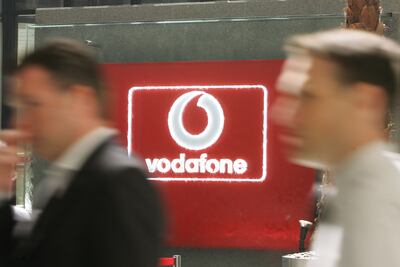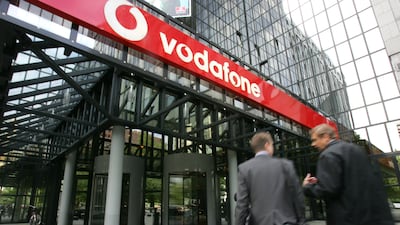The UK mobile networks Vodafone and Three have promised to work with the country's competition regulator to allay fears over pricing and competition regarding their proposed merger.
Both companies first proposed a corporate marriage last summer and have faced regulatory scrutiny. Executives said they would continue to work with the Competition and Markets Authority (CMA) to “demonstrate the merged company will deliver in full on the committed network investment”.
Vodafone and Three have disagreed with claims made by the watchdog that their £15 billion merger deal would lead to higher bills for customers and reduced competition. The CMA said on Friday it had “provisionally found competition concerns” while investigating the planned merger, which the watchdog has been scrutinising since January.
However, Vodafone's head of European markets, Ahmed Essam, told the BBC the merger deal would actually increase competition and the quality of the network. “We've made a significant commitment to an £11 billion investment,” he said. “We're willing to make sure that this is legally binding, and we undertake a commitment to deploy this.”
At the moment, there are four mobile operators in the UK: Virgin Media-O2, EE, Vodafone and Three, which is owned by Hong Kong-based CK Hutchison. Vodafone's chief executive, Margherita Della Valle, said a merger between her company and Three would be a “catalyst for change”.
“We are offering a self-funded plan to propel economic growth and address the UK’s digital divide,” she said in a statement. But the CMA said it was worried that a merger, which would create a network of 27 million people, could “negatively affect those customers least able to afford mobile services as well as those who might have to pay more for improvements in network quality they do not value”.
The watchdog also said the merger would negatively affect Mobile Virtual Network Operators (MVNOs), which are companies that offer mobile services but do not operate mobile networks. Companies such as Lyca Mobile, Sky Mobile and Lebara would be impacted simply because the number of mobile networks in the UK would be reduced from four to three, which, the CMA said, would make it “more difficult for MVNOs to secure competitive terms, restricting their ability to offer the best deals to retail customers”.
Vodafone and Three argue that because 90 per cent of MVNOs rely on either Virgin Media-O2 or EE, the introduction of a third large player, in the shape of their merged entity, would actually level the playing field.
“Vodafone and Three’s pitch is that they need to combine to compete more effectively with larger rivals Virgin Media-O2 and EE, and they have also pledged significant infrastructure investment,” said Russ Mould, investment director at AJ Bell. “However, the CMA think customers are going to face worse outcomes and this is an understandable position given the number of big network operators in the UK would be reduced by 25 per cent at a stroke if the deal goes through,” he added.
The CMA also published a list of remedies the two companies could undertake to get their corporate marriage approved, including legally binding investment commitments overseen by the telecoms regulator Ofcom, and measures to protect both retail customers and customers in the wholesale market. Karen Egan from Enders Analysis feels the CMA’s stance was essentially a green light for the merger and that the proposed remedies are easy for the companies to follow.

'Dysfunctional' market
The CMA conceded that the merger, by combining the networks of Vodafone and Three UK, would actually speed up the deployment of 5G technology and services. It opened the door to further talks by stating the merged firm would “not necessarily have the incentive to follow through on its proposed investment programme after the merger”.
“We will now consider how Vodafone and Three might address our concerns about the likely impact of the merger on retail and wholesale customers while securing the potential longer-term benefits of the merger, including by guaranteeing future network investments,” said Stuart McIntosh, chair of the inquiry group leading the CMA's investigation.
Meanwhile, Robert Finnegan, chief executive of Three, said the UK market was “dysfunctional and lacks quality competition”, because of the existence of two large players (EE and Virgin Media O2) and two small players (Vodafone and Three). “We are determined to reassure the CMA in relation to their provisional concerns and work with them to secure the extensive benefits this merger brings for UK customers, businesses and wider society,” he said.
While both firms are committed to working with the CMA, Mr Mould said Vodafone could “really do with something to revive a business and a share price which has been listing badly for years. However, if the trade-offs become too large then Vodafone and Three walking away from a tie-up can’t be ruled out.”
The CMA's final report on the merger between Vodafone and Three UK will be released on December 7.


